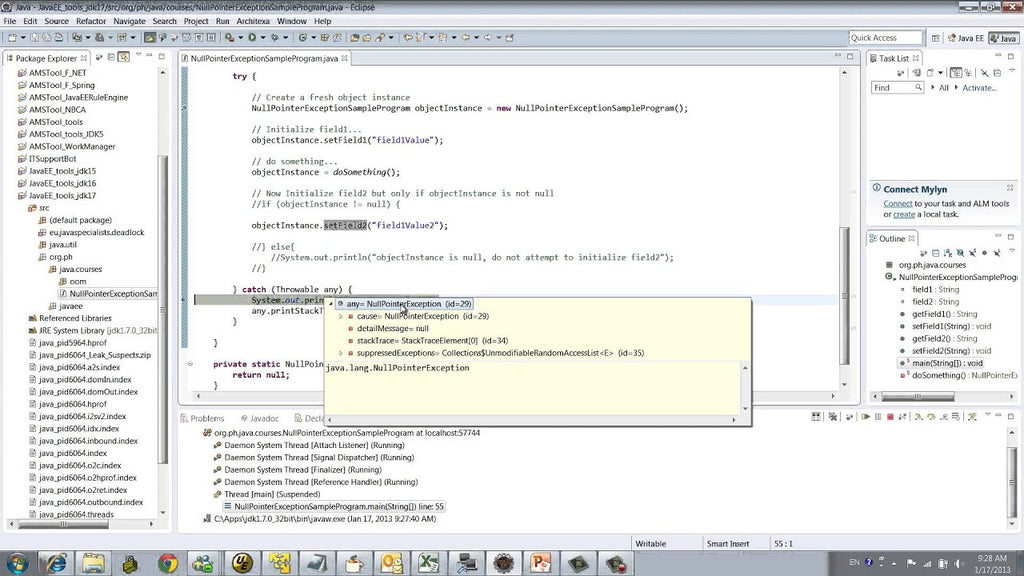A NullPointerException is a common error in Java and other programming languages. It occurs when you try to use a reference variable that has a null value. In other words, you are trying to call a method or access a field on an object that doesn't exist.
Here's an example of how a NullPointerException can occur in Java:
String name = null; System.out.println(name.length()); // This will throw a NullPointerException
In this example, we are trying to call the length() method on a null reference name, which causes the NullPointerException.
To fix a NullPointerException, you need to make sure that the reference variable is not null before using it. Here are some common strategies to avoid NullPointerExceptions:
- Check for
nullexplicitly: Before calling a method or accessing a field on a reference variable, check if it isnull. For example:
if (name != null) { System.out.println(name.length()); }
- Initialize variables: Make sure that your reference variables are initialized to a non-null value before using them. For example:
String name = ""; System.out.println(name.length());
- Use safe navigation operator: In Java 8 or later versions, you can use the safe navigation operator
?.to avoid theNullPointerException. For example:
String name = null; System.out.println(name?.length()); // This will output null instead of throwing a NullPointerException
Overall, the best way to fix a NullPointerException is to prevent it from occurring in the first place by checking for null explicitly and making sure that your reference variables are properly initialized.


![[system.outofmemory] Beanie](http://systemoutofmemory.com/cdn/shop/files/systemoutofmemory-beanie_3e06d676-1bdf-4685-8284-1560dd50f1bf_large.png?v=1730572513)












































